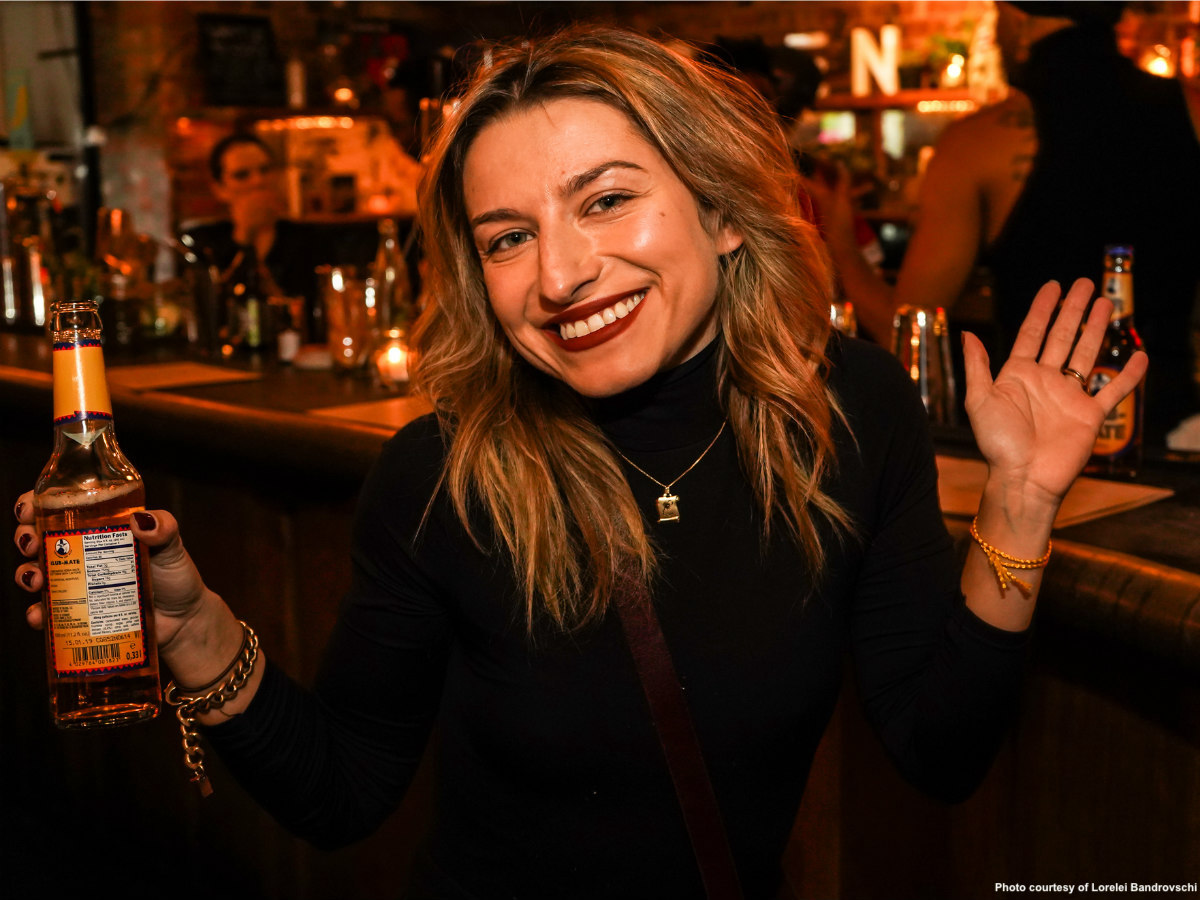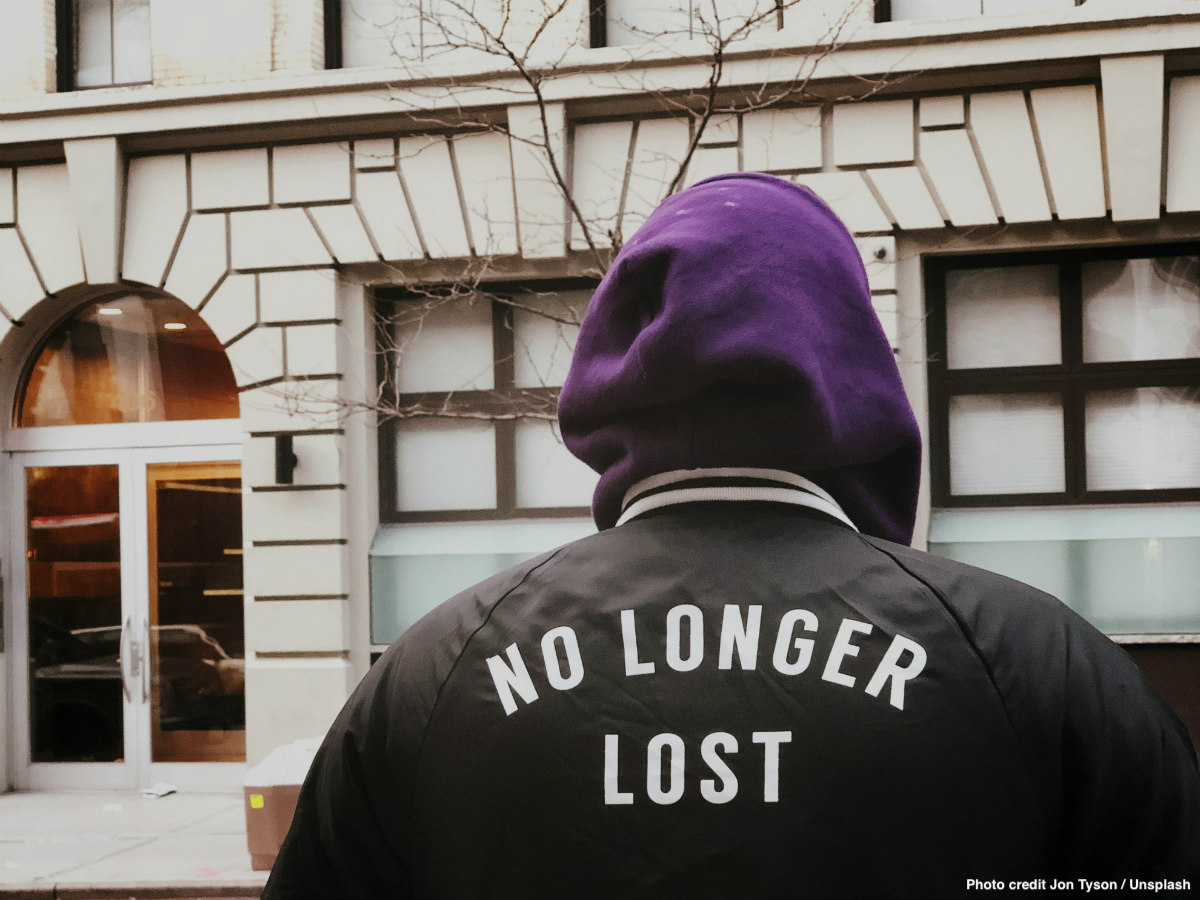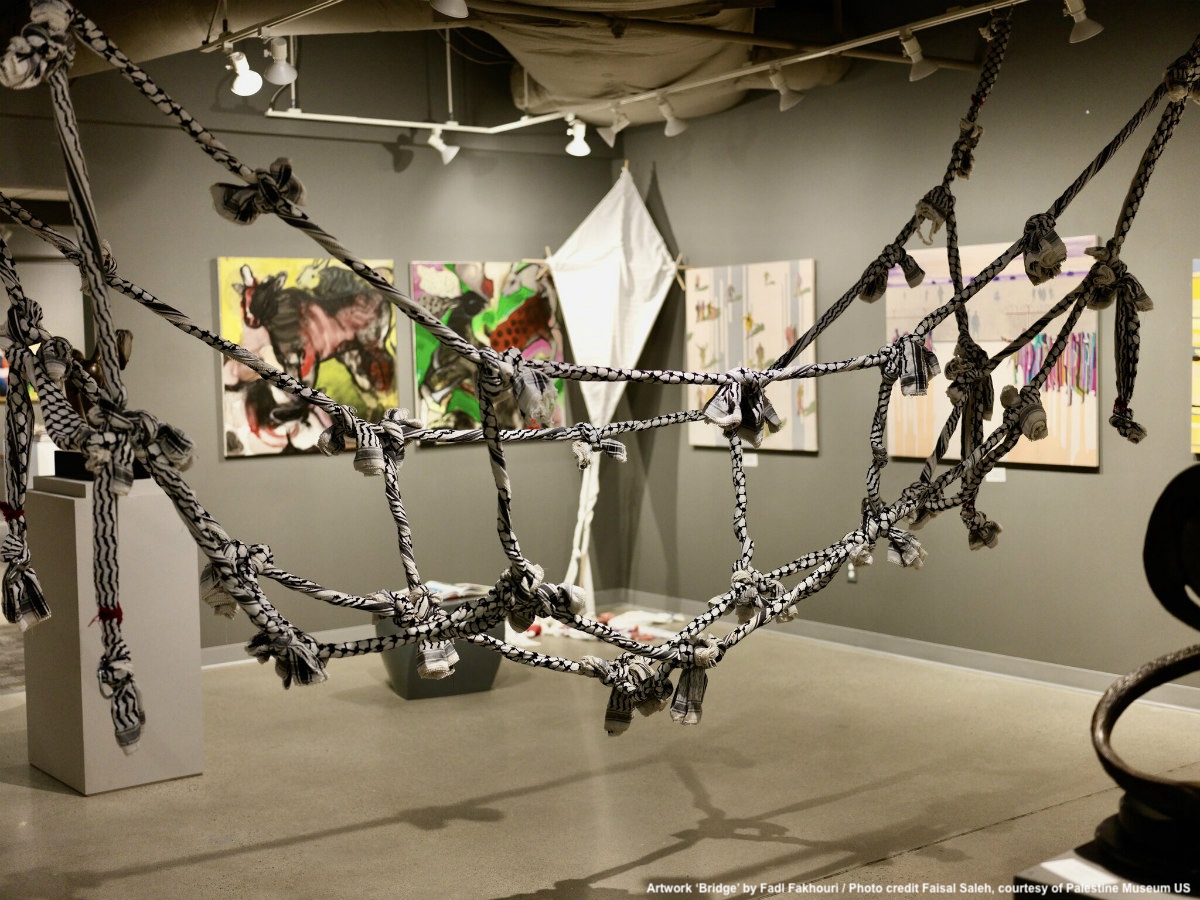It is an interesting thing, telling people that you’re going to speak with the founder of an alcohol-free bar in New York. The first thing you get is a mixture of uncertainty and excitement. “A bar without alcohol?” The next, if you tell a male friend, tends to be disappointment, and then disbelief. But these reactions might be just on the surface.
Lorelei Bandrovschi is the first woman to open an alcohol-free bar in New York. Since October 2018, her Listen Bar has popped up at venues across New York, throwing memorable parties that are eagerly awaited. People are excited about the alcohol-free cocktails and mood-setting music, which aims to be the ice-breaker of great conversation.
For Bandrovschi, this all started on a dare from a friend to not drink for a month. “I thought this was gonna be hard but then it turned out to be more fun than expected.” And she adds, “after that experience I started going out without drinking more often, and it was more about me not using alcohol to “loosen up” in social settings.”
From there, an idea for an alcohol-free bar sparked, which she shared online to a rapidly growing response. So Bandrovschi quit her successful job as a brand consultant to create a bar where people could have a great time without drinking. This, she says, “goes against everything the alcohol industry told us – that alcohol is the thing you need to be social and belong.”
“But actually we are happy without it. And this is a really compelling message that took the alcohol industry by surprise,” says Bandrovschi.
In being late to embrace this shift, the alcohol industry might have missed the female boat. I asked Bandrovschi if we might be onto something with the idea of an alcohol-free bar coming from a female entrepreneur. She acknowledges the contribution of the men who have also pushed the alcohol-free movement forward, especially at the start, yet recognizes and takes pride that female voices are especially strong in this movement.
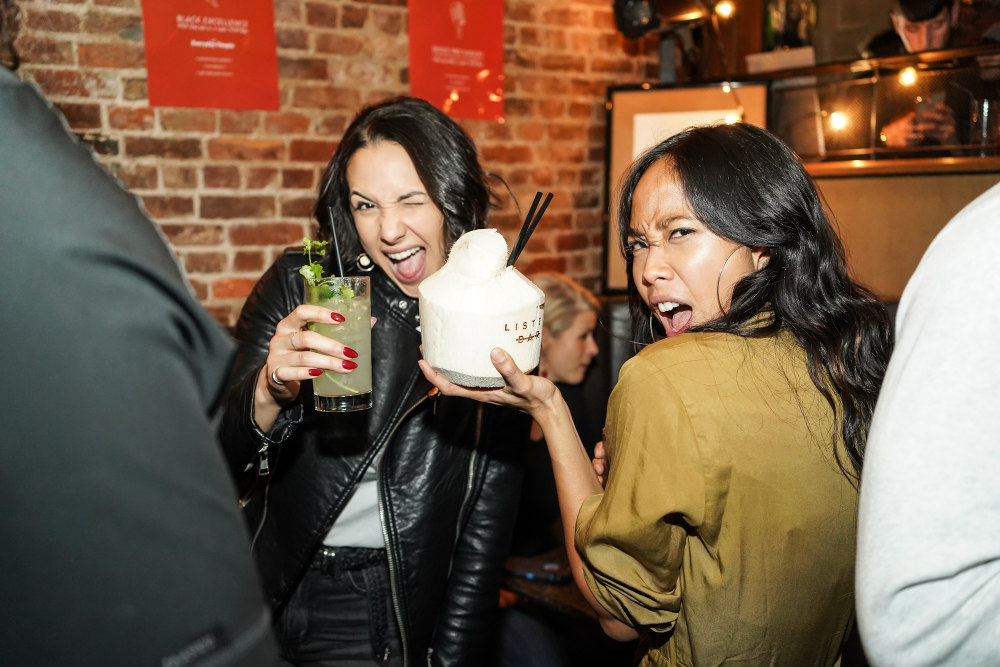
While Bandrovschi doesn’t love gendering things, she sees an aspect of that in how the female-dominated sober curious movement burst into the mainstream. Many women connected with a modern idea of drinking less that was rooted in wellness and wanting to feel your best. Along with this, Bandrovschi believes it’s about being social. She shared how a male sobriety influencer had noticed that a lot more women engage with his Instagram, a public forum, while more men engage with his email newsletter, a more private channel.
“This is interesting, because right now the movement feels women-led and female-dominated. Of course, men and all people have a place in it as well. Yet there’s something to women’s willingness to be more open and communal about it,” says Bandrovschi. “To want to create new drinking rituals and find our people in them.”
This goes against everything the alcohol industry told us – that alcohol is the thing you need to be social and belong.
I tell her that to me the other aspect that came to my mind when I first heard of the alcohol-free movement was safety amid the news on sexual harassment or assault at parties or events. But Bandrovschi views safety as more of a positive side effect, rather than the mission behind creating Listen Bar. She adds, “as a very short woman, when regular bars get crowded, I’m often pushed around and feel uncomfortable. What I notice at Listen Bar is that even if people are shoulder to shoulder, they are more considerate with each other. That sense of care extends into a greater sense of safety,” especially for female and queer guests.
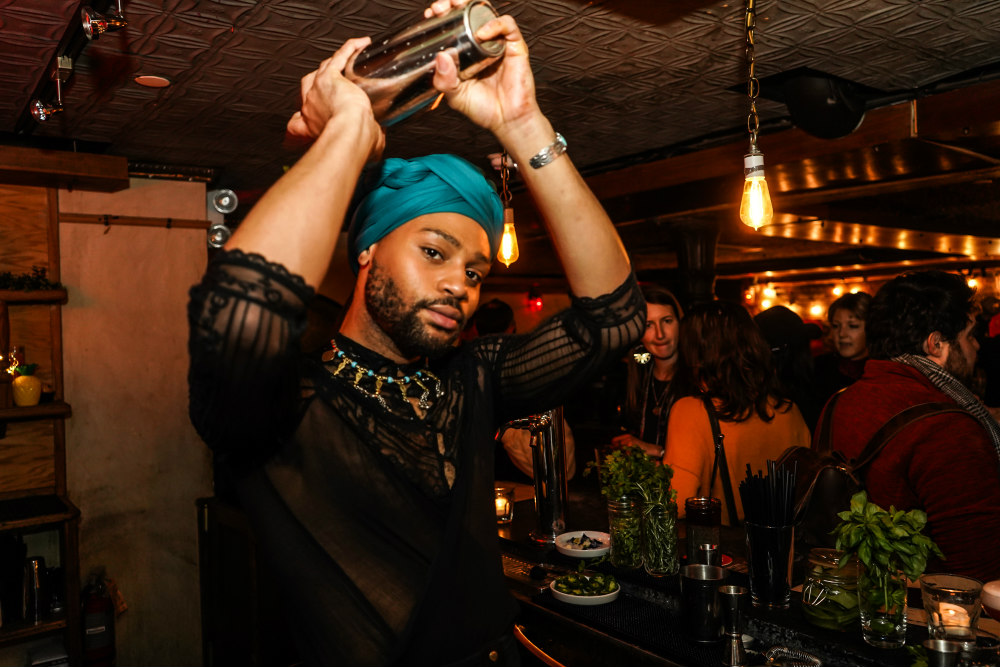
Being the first woman to create an alcohol-free bar in New York has put Bandrovschi in the public eye, albeit as a leader of a niche community. With recognition in the press and online, she has come to be viewed as a leader and expert in alcohol-free nightlife, which she found came with “pressure and a sense of always being on.” As a result, Bandrovschi decided to swap New York for her new home in Lisbon, from where she manages Listen Bar maintaining a foothold in the Big Apple. Moving to Lisbon was definitely a choice for personal growth, she says, where she has found space to cultivate herself: “Choosing to live here is part of a very intentional healing and a rediscovery that definitely works for me.”
Living in Europe isn’t new for her, as Bandrovschi is Romanian born and raised, having only moved to the US to attend college. In perfect American English, she tells me that she felt completely inspired and immersed living in New York for the past decade, yet she has mixed feelings about sounding as American as she does. As an entrepreneur, her invisible foreignness felt as an advantage, although she was a little bit wounded when her immigrant identity was omitted from the picture. Her move back to Europe was both a return to her roots and a new chapter for both her and Listen Bar.
During the pandemic, she found herself evaluating success in new terms beyond the capitalist definition. In the new vision of success that emerged, she realized the reason to pursue her business was driven by the purpose to create a life she believes in. Right now, that looks like living in Lisbon and coming back to New York to throw a few standout parties every year.
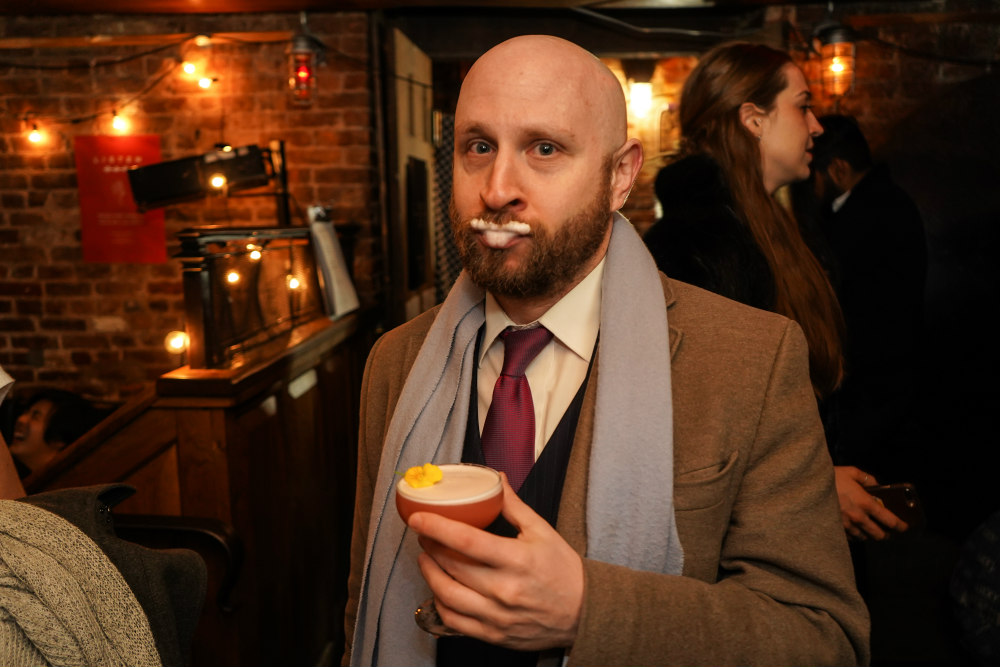
Listen Bar gets Bandrovschi excited and her intention with the events is to continue to take a step forward for the alcohol-free movement. It is about being in service of a culture with its own force, much bigger than her or any one voice. “With the next Listen Bar parties, it’s about going bigger, opening new doors and continuing to set the standard of how fun, delicious and exciting an alcohol-free party can be,” she says.
The name Listen Bar, by the way, is not coincidental. While alcohol-free drinks are what’s on the menu, the bar claims to ultimately serve “music and conversation.” And the music is actually also served by those behind the bar: musicians who work as bartenders for the night and create the bar’s playlists. The decision to hire musicians was meant to give guests an easy conversation starter beyond the transaction of a drink order.
At the same time, Bandrovschi chose it as an antidote to the music world’s reliance on alcohol, where indie musicians often work as bartenders, venues depend on alcohol sales, and working in the industry often requires drinking at shows. Bandrovschi’s hope is that Listen Bar can be a beacon towards the music world becoming less reliant on alcohol and more inclusive for non-drinkers.
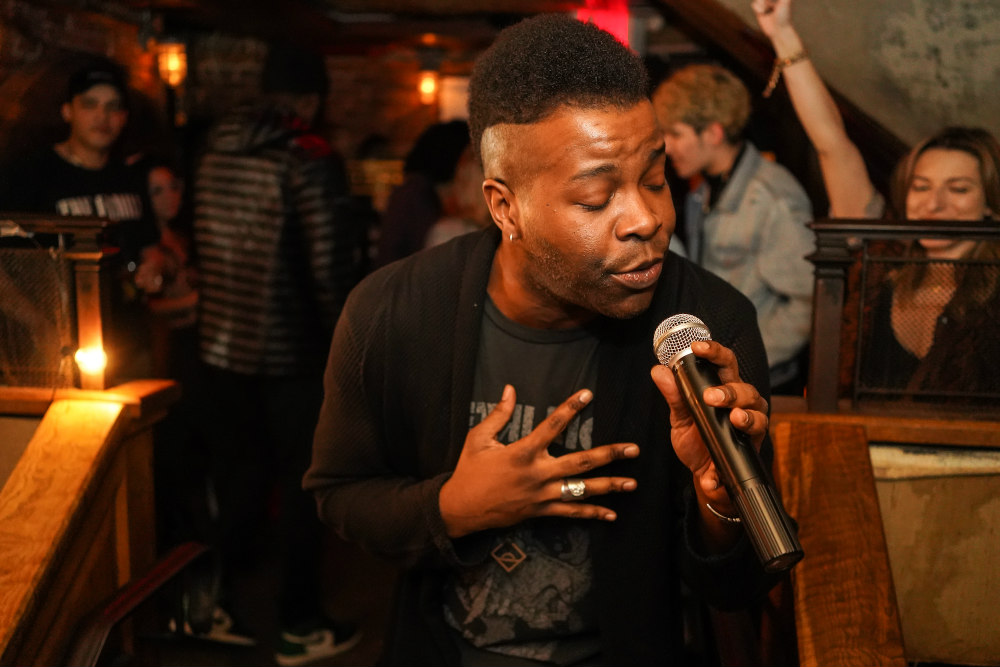
At the end of our conversation, I ask Bandrovschi why she is a big believer in synchronicity and how it plays a role in her journey. “To me it is the idea of noticing something that connects a moment with another and makes it feel like a coincidence,” she says. She got the dare that brought her where she is today for her 27th birthday. Across the street from Listen Bar’s second pop-up, she spotted a Blondie mural with the number 27 on it. Almost five years later, the latest Listen Bar party was hosted on 27th Street. “Synchronicity comes to life in different ways, and looking for those patterns is like an inside joke with the universe.”
Sometimes synchronicity can also be fuel when faced with doubts. Bandrovschi reflects on how she has been underestimated by people who dismissed her alcohol-free enterprise. Luckily, this only made her want to prove them wrong. “You learn to be a person who is unafraid of conflict in a positive way and that kind of energy is crucial for an entrepreneur in this kind of environment,” she says.
At the end of our chat, she asks me hesitantly why I think she is an activist. I tell her that her approach to the non-alcoholic movement is akin to a solutionist. I explain how to me, an activist isn’t only the person campaigning to raise awareness on the streets, it’s also the person who changes culture by creating a new solution, like her pop-up alcohol-free bar.
I see her project as electric with curiosity to drive change in a city like New York. And she replies: “Yes, my work is like a Trojan horse. I am creating the space and, by doing that, showing people that having fun without alcohol is possible.”
